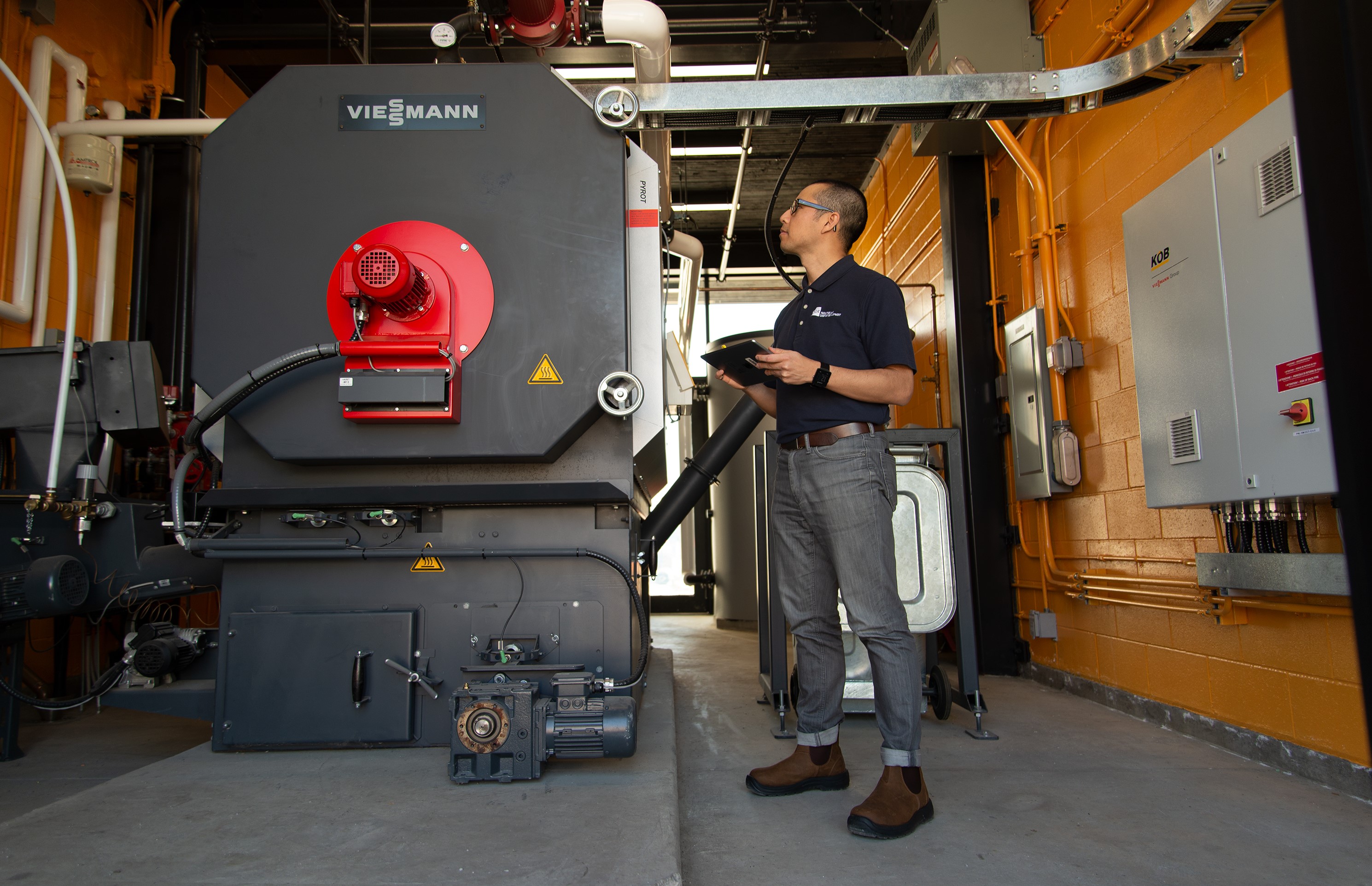When we turn on the hot water, or walk into a warm building on a cold day, most of us don’t think of energy infrastructure thousands miles away. But in fall 2018, when a gas pipeline ruptured near Prince George, communities from the north all the way to Washington State learned just how important those connections can be.
BCIT was no exception. Campus heating and hot water systems rely on a constant flow of natural gas through an interconnected system linking all campuses to the northern reaches of the province. When the flow was suddenly reduced and restricted, it left staff working overtime to conserve energy wherever possible. “The whole experience exposed issues of energy security,” says Colin Chan, BCIT’s Energy Manager, who explained that our need for constant access to reliable energy sources from off-campus can be a real vulnerability.
Learning how to adapt
“As we go forward, we’re trying to build more resilience on campus,” adds Chan. Resilience describes a system’s ability to recover after a disruption; one way that BCIT aims to build this capacity is to generate energy right on the premises.
“It’s something we’re really thinking about when we build anything new,” highlights Chan, “we also want to demonstrate for students what’s possible by having a viable closed loop.” In a closed loop system, material or energy waste from one process flows into another.
SEE MORE: Help prove BCIT is the coolest campus!
The wood-waste-to-energy facility on the north side of campus, for example, is anticipated to redirect 250,000kg of wood cut-offs and sawdust from BCIT’s carpentry and joinery programs, which would otherwise be trucked away. The wood waste will serve as a renewable fuel which will offset the natural gas needed to heat buildings on campus. Projects like this will mean that BCIT won’t be entirely reliant on energy from far away.
Banding together
The natural gas shortage also highlighted that resilience is about more than infrastructure. During the natural gas shortage this fall, Chan saw how community connection also played an important role in ensuring buildings could run efficiently.
SEE MORE: How our new energy management team is tackling greenhouse gas emissions at BCIT
“I was surprised when I got a call from staff in buildings on the south side of campus who were unaffected and heard about buildings on the north side who were and offered to turn down their heat, as well,” says Chan. With heating and hot water accounting for 90% of BCIT’s greenhouse gas emissions, this was an important offer that benefited the students, staff and faculty across campus.
From energy conservation challenges like BC’s Cool Campus Challenge to renewables projects, Chan says “The ethos of BCIT’s energy team is to conserve energy, while understanding where energy comes from.” These two prongs are key to a resilient campus according to Chan and his team. Incidents like the pipeline rupture this fall, while challenging, can help surface opportunities to rethink waste and appreciate the resources that surround us.

Building resiliency on campus and beyond
The Cool Campus Challenge resulted in 455 BCIT students, staff, and faculty pledging to take personal action to reduce climate change. Combined with similar action from nearly 2,000 members of the post-secondary communities of Selkirk College, Thompson Rivers University, SFU, and UBC, this challenge made a real difference in BC’s natural gas consumption.
The campaign saw Selkirk College gather the most pledges per capita, and be named BC’s Coolest Campus! A big congratulations go out to the Selkirk community from your friends at BCIT.
Have you subscribed? Sign-up to receive the latest news on BCIT.
This story is part of the monthly Countdown to Ecocity 2019 series, which highlights BCIT’s leadership in the face of today’s complex environment challenges. This initiative supports the Ecocity Standard for Clean and Renewable Energy, which rethinks how we source our energy to address climate change.
Learn more about BCIT’s role as host of the Ecocity World Summit in 2019.
